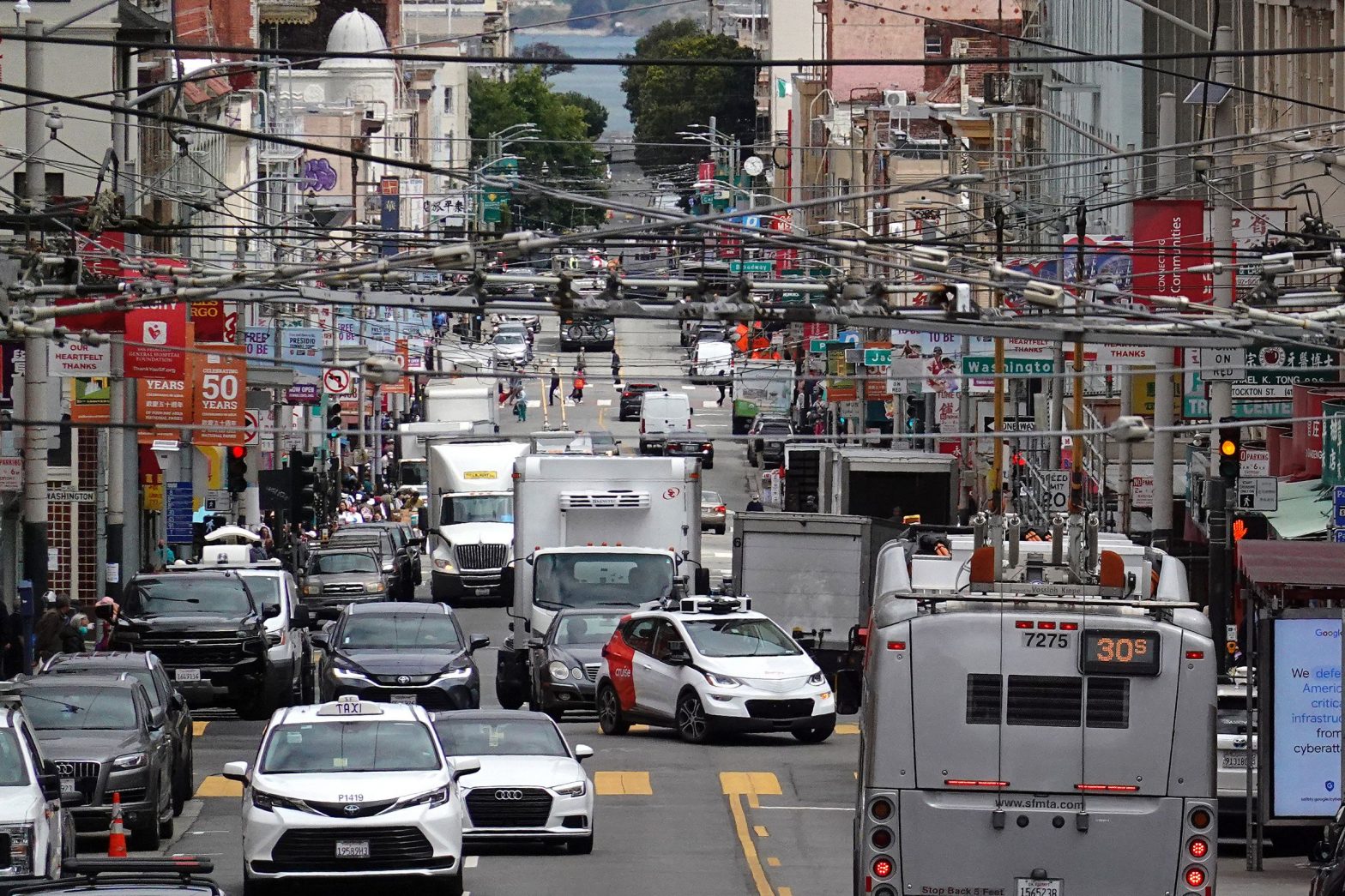/
After a six hour hearing, the California Public Utilities Commission voted to open the floodgate to autonomous vehicles. Public comment was sharply divided.
Share this story
:format(webp)/cdn.vox-cdn.com/uploads/chorus_asset/file/24843183/1497019989.jpg)
Waymo and Cruise were approved to operate their robotaxi services 24/7 in San Francisco, after a contentious public hearing in which residents voiced their support and opposition to the vehicles.
The vote by the California Public Utilities Commission allows the two companies to operate their vehicles at any hour of the day throughout the city of San Francisco.
Currently, the companies only offer limited service. The vote in favor of the companies essentially gives robotaxis full access to the peninsula and its residents. They are now able to operate similarly to Uber or Lyft — travel anywhere in the city, at any time of day, and charge money for the rides.
The six-and-a-half hour hearing featured a variety of voices, many of them from the disabled community, speaking to the pros and cons of autonomous ride-hailing services. Residents opposed to the companies spoke of blocked traffic and robot cars allowed to run roughshod throughout the city. Supporters praised the vehicles as safer than human drivers and the potential boon for disabled riders. After hours of public testimony, those opposed to the vehicles appeared to have a slight edge over the supporters.
San Francisco is being “pimped out” by big technology companies, a resident named Michael Martinez said during the hearing. He accused Waymo and Cruise of “trotting out blind people and their dogs” to generate sympathy for their cause. “You guys aren’t stupid,” he told the four commission members. “Don’t be stupid.”
But the disabled community wasn’t unified in favor of the expansion. Rebecca Miller, who had visual impairment, urged the commission to vote no, citing concerns about pedestrians and a need for more affordable transportation like transit.
“A car needs to have a driver in it,” a woman who drives for Lyft said. “It’s insane not to have a driver in it.”
For months, San Francisco city officials have been pleading with the state to delay the vote, citing a spate of incidents in which autonomous vehicles have stopped traffic, blocked buses, or obstructed emergency vehicles. The city’s transit agency and fire and police department have all logged complaints with the CPUC, calling for the commission to reconsider the plan for 24/7 service.
Developing…
